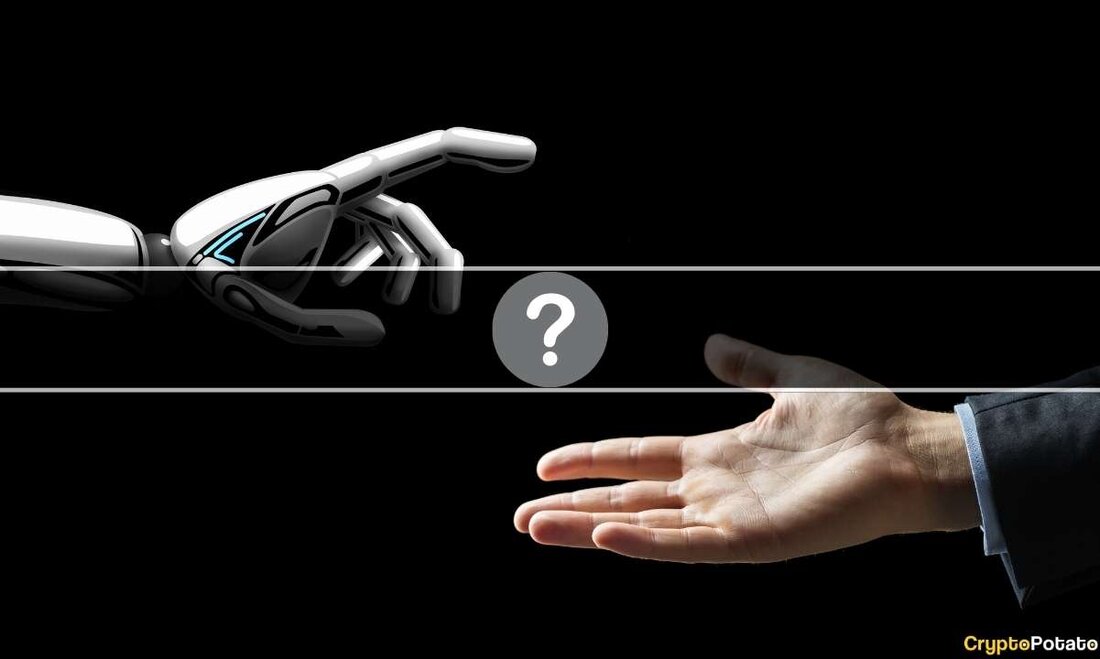Can you see the difference? Because 38 % of the users cannot do it
Artificial intelligence penetrates faster than ever before, and AI-based chatbots such as Chatgpt from Openaai are becoming increasingly popular. It also had a significant impact on the cryptocurrency industry, since a number of AI-related (and not so related) cryptocurrencies gained value in early 2023 when AI mania just gained drive. Now a playful approach to the popular Turing test provides some fascinating results about how far AI-based chatbots come. But first let us clarify a few clarifications. What is the Turing test? Originally mentioned the imitation game's goal of the test developed by Alan Turing in the 1950s is ...

Can you see the difference? Because 38 % of the users cannot do it
artificial intelligence penetrates faster than ever before, and AI-based chatbots such as Chatgpt from Openaai are becoming increasingly popular.
It also had a significant impact on the cryptocurrency industry, since a number of AI-related (and not so related) cryptocurrencies gained value in early 2023 when AI mania just won.
Now a playful approach of the popular Turing test provides some fascinating results about how far AI-based chatbots come. But first let us clarify a few clarifications.
What is the Turing test?
originally mentioned The imitation game goal of the test developed by Alan Turing in the 1950s is to determine the ability of a machine to show intelligent behavior that is equivalent or not to distinguish them.
For those who don't know it: Alan Turing was an English mathematician, computer scientist, philosopher, cryptoanalyst and logic. He had a special influence on the development of theoretical computer science.
In the past few months, however, the Turing test in its classic version has been subjected to a certain examination. Someone decided to make the model in a playful way.
human or not? is an interesting "game" in which you can chat with someone - a AI or a person - and at the end of the game decides who it was. You have 2 minutes to ask as many questions as you want or to have a conversation that you want.
38 % could not recognize the difference
We tried the game ourselves and carried out two instances of it. The first time we did as if we were the bot to give some more interesting answers, but it felt a little obvious.
The second got dark very quickly. We opened with a friendly "Hey" and our conversation partner escalated the situation immediately.
At that point we felt like we were talking again with a bot, but it turned out that it was a person. In retrospect, one of the most common concerns of people is that a AI would take over humanity, so this could have been quite obvious. We did 1 of 2 right and will continue with it.
However,it seems that a whopping 38 % of the users could not make a difference. The sample size is also quite remarkable - supposedly 1.5 million users.
becoming AI more intelligent?
to be honest, our experiences with the game were a bit poor, and we had the feeling that two minutes for a conversation that would make it possible for everyone to make a well -founded assumption. Against this background, it goes without saying that AI-based voice models are getting better.
Chatgpt is not the only example because the competition becomes harder from day to day.
And we have to ask ourselves: How will AI affect the crypto industry? Nobody may suspect that, but we have already asked Chatgpt ourselves. Find out more in our article:
6 ways, as artificial intelligence (AI) will change our lives until 2030: Chatgpt-forecast
And yet you should enjoy everything that a chatbot says to you, because it is still subject to many restrictions.
.

 Suche
Suche
 Mein Konto
Mein Konto
